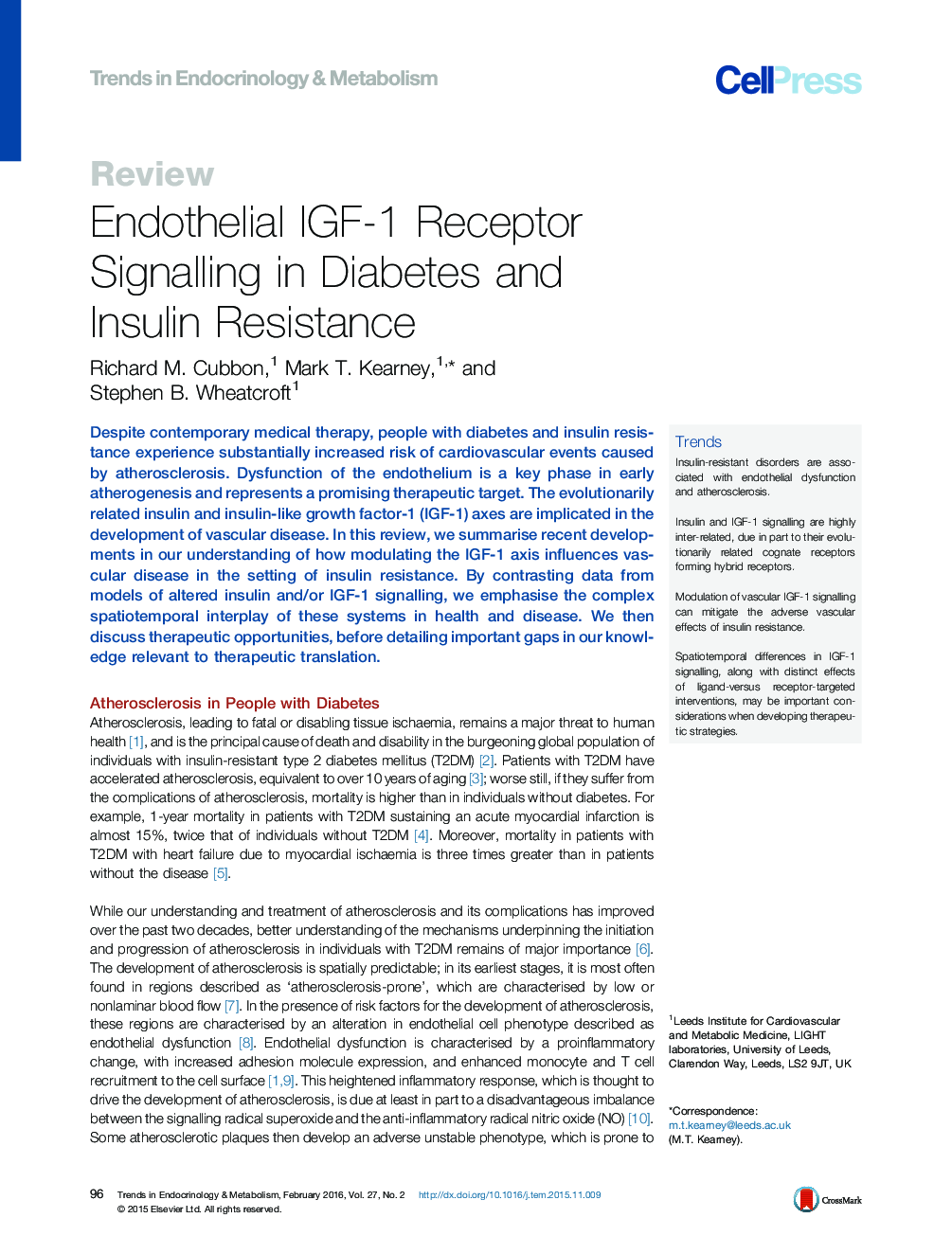| Article ID | Journal | Published Year | Pages | File Type |
|---|---|---|---|---|
| 2810106 | Trends in Endocrinology & Metabolism | 2016 | 9 Pages |
Despite contemporary medical therapy, people with diabetes and insulin resistance experience substantially increased risk of cardiovascular events caused by atherosclerosis. Dysfunction of the endothelium is a key phase in early atherogenesis and represents a promising therapeutic target. The evolutionarily related insulin and insulin-like growth factor-1 (IGF-1) axes are implicated in the development of vascular disease. In this review, we summarise recent developments in our understanding of how modulating the IGF-1 axis influences vascular disease in the setting of insulin resistance. By contrasting data from models of altered insulin and/or IGF-1 signalling, we emphasise the complex spatiotemporal interplay of these systems in health and disease. We then discuss therapeutic opportunities, before detailing important gaps in our knowledge relevant to therapeutic translation.
TrendsInsulin-resistant disorders are associated with endothelial dysfunction and atherosclerosis.Insulin and IGF-1 signalling are highly inter-related, due in part to their evolutionarily related cognate receptors forming hybrid receptors.Modulation of vascular IGF-1 signalling can mitigate the adverse vascular effects of insulin resistance.Spatiotemporal differences in IGF-1 signalling, along with distinct effects of ligand-versus receptor-targeted interventions, may be important considerations when developing therapeutic strategies.
